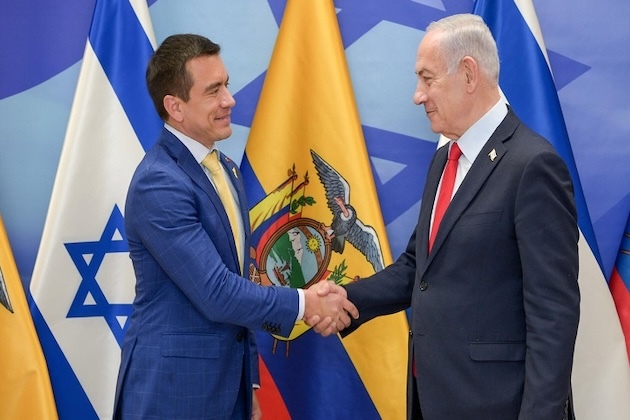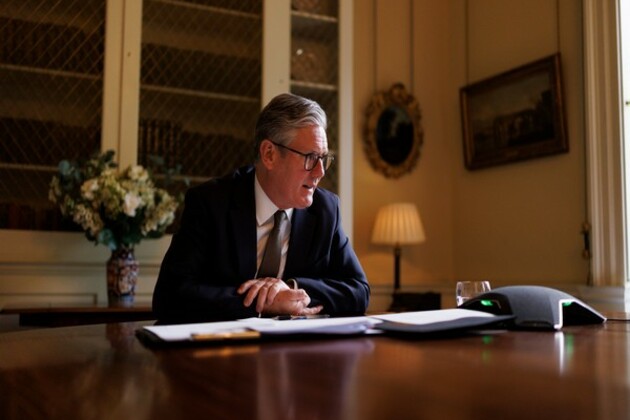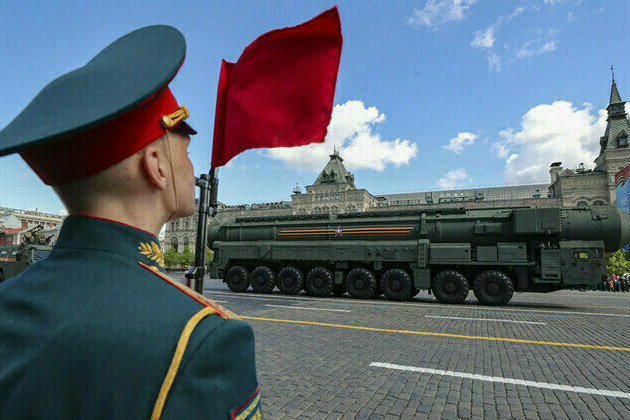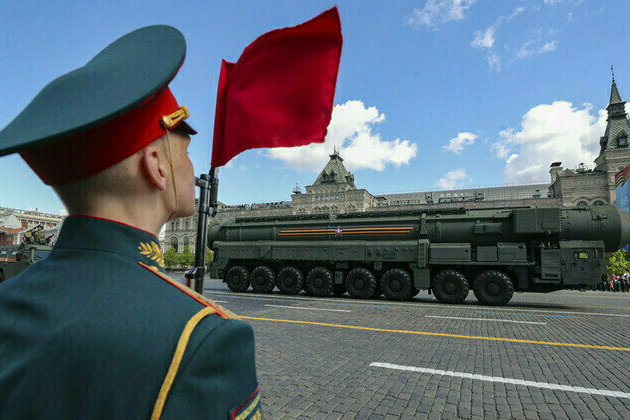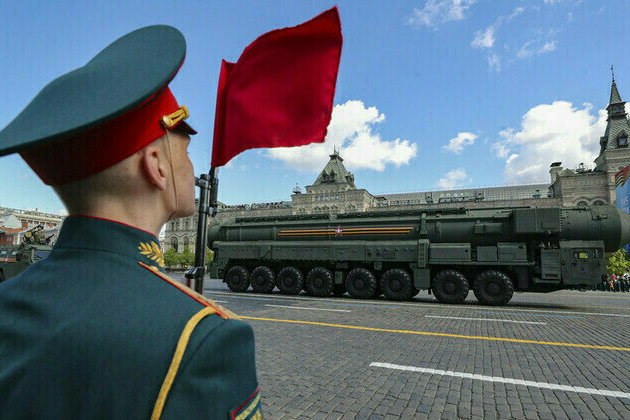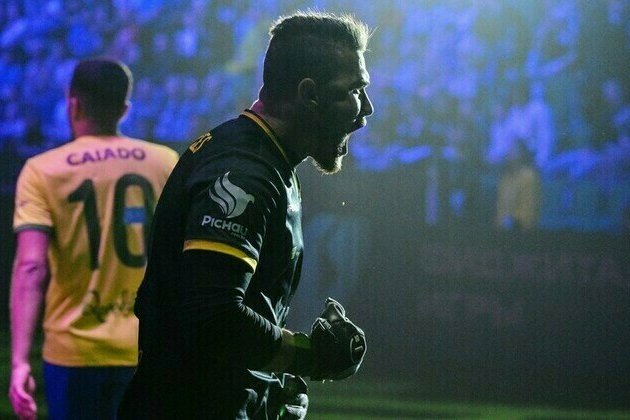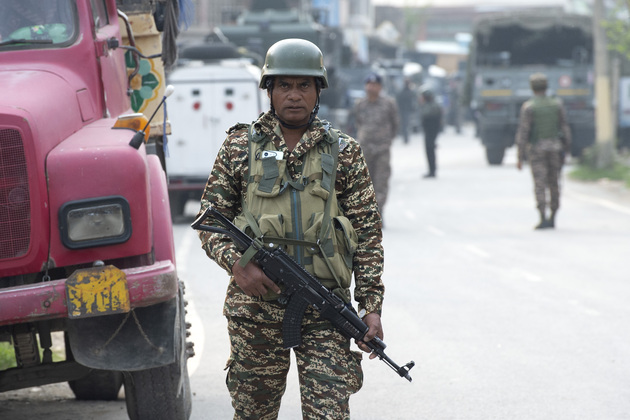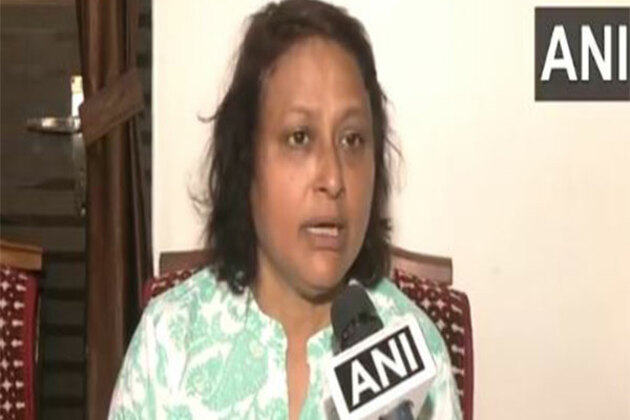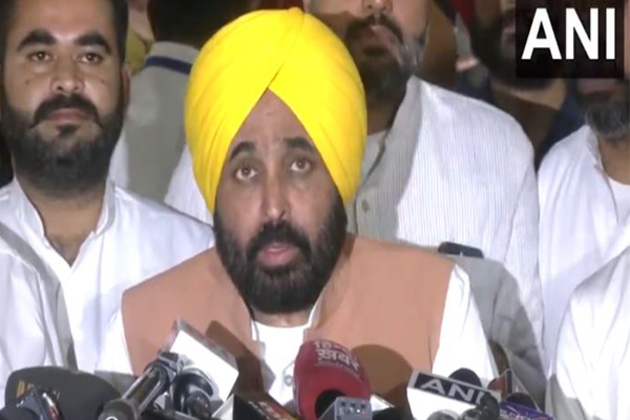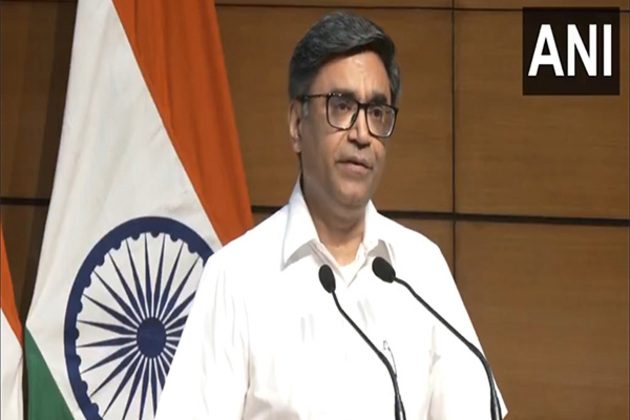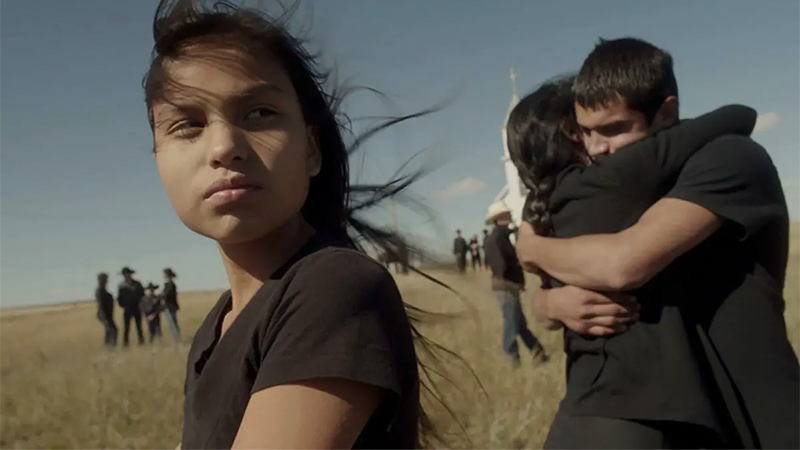Thanks, no Kiev: Russia and US can reconcile without Ukraine
RT.com
26 Apr 2025, 02:30 GMT+10
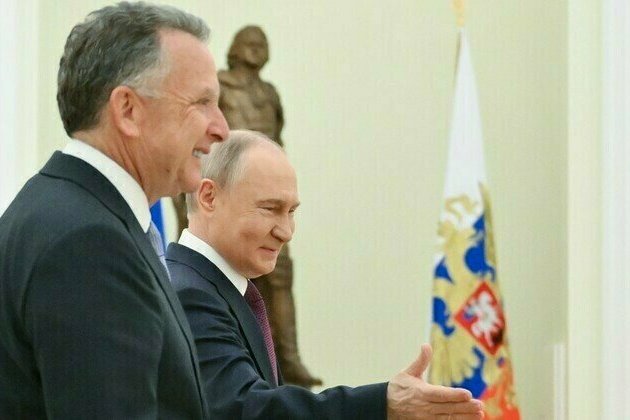
Steve Witkoffs Moscow visit seems to show that a detente the two nations is possible even if Zelensky is not part of the equation
Russian President Vladimir Putin has met again with Steve Witkoff, special envoy of US President Donald Trump. Fromthe little the cameras showed us of the meetingit appears that the atmosphere was unusually friendly. The discussion was also long, lasting for about three hours.
Yet, at this point, we know little about its content or, more importantly, what progress has been made or not.We do know, from Russia's Yuri Ushakov, special aide to Putin, that the meeting was, in his words, "constructive" and "useful." In particular, it has produced closer proximity between the Russian and US positions, not only on Ukraine but also on other issues that have - mostly - not been further specified. With the important exception of the possibility of facilitating direct talks between Russian and Ukrainian representatives.
Clearly, it is too early to draw strong conclusions about the meeting and its results. One thing that seems certain is that it was not a failure. Even if Ushakov's language was restrained, it did signal that much. Beyond that, however, we can only speculate: One thing we know from the meeting's context is that Trump has, once again, publicly displayed great dissatisfaction and impatience with Kiev and personally with Ukraine's leader Vladimir Zelensky. This time, using his own social media site Truth Social, Trump focused on Zelensky's refusalto accept the loss of Crimea. More broadly, he reminded Zelensky that he has little leverage ("no cards") and that his stalling delays ending the war.
This intervention is in line withwhat Trump's critics furiously decry as a pattern of being soft on Russia and hard on Ukraine. In principle, while exaggerating a little, the critics have a point. Trump has effectively reversed the former US approach, which consisted of pampering Ukraine and always blaming Russia. But what Trump's critics here fail to realize is that, on this issue, he is right. He cannot quite say it, but Russia is winning the war against both Ukraine and, in effect, the West. In this situation, a US president has two options: escalate further, most likely to, at least, a very large regional war in Europe and parts of Asia or finally speak to Russia in terms that Moscow can find acceptable. That is precisely what Trump has decided to do, at least for now. And anyone who wishes to avoid escalation has to agree with him, if not in detail, then fundamentally.
The latest round of talks between the Russian leadership and Witkoff confirm that Washington is staying the course outlined above. More broadly again, it also means that the US is not abandoning the style of its latest peace proposal for the Ukraine War.The latter is reported to offera freezing of current lines on the ground, the long overdue to Ukraine's NATO perspective (which, if it had come in late 2021 could have prevented the war's large-scale escalation), sanctions lifting, as well as recognizing Crimea as Russian.
These terms do not, actually, coincide with all of Russia's demands. But they try to meet Russian concerns as never before.As Russian Foreign Minister Sergey Lavrov has pointed out, Trump is unique among Western leaders in acknowledging the root causes of the war. In that sense, the US peace proposals show not only that Washington is now realistic about the situation on the ground (heavily in Russia's favor), but also that Trump's administration is principally ready to shape its concrete policy according to the insight referred to by Lavrov.
That leaves, as far as the Ukraine War is concerned, two key questions: Will Trump follow through by withholding further military deliveries and crucial intelligence support to Kiev, and if so, when? Second, what are the NATO-EU Europeans going to do - or not do? While they still seem to be sticking to their rhetoric of blocking a path to peace, there are also signs that their misguided and harmful (for Ukraine most of all) resolve is crumbling: Britainis preparing the ground for explicitly giving upon silly schemes of sending troops to Ukraine, Polish President Andrzej Duda has recognized the fact that Ukrainehas to make concessions to Russia, former NATO general secretary and uber-hawk Jens Stoltenberg has said the same, and current NATO figureheadMark Rutteis demonstratively praising Trump for "breaking the deadlock."
European hardliners are by no means ready to give up yet. Both Poland'sRadek "Thank you, USA!" Sikorskiand France'sEmmanuel "I love my scent" Macronhave produced hysterics of frustrated denial. Whichever way NATO-EU Europe ends up going, it is certain already that it is fracturing.
The above is the immediate backdrop of the latest meeting between Putin and Witkoff. The one thing we can take away from that meeting even now is that none of it has damaged the ongoing search for a fundamental normalization of the relationship between Moscow and Washington, which is good news for the world, whether European bellicists like it or not.
But it is more difficult not only to say anything about details, but also about one key question: Will this detente between Russia and the US proceed by including a settlement for Ukraine or will the two tracks diverge? It is possible for Washington and Moscow to keep working on normalization between them, while dropping the issue of Ukraine. That is the real meaning of Trump's reminder to Zelensky that the US can recognize Crimea as Russian whatever Kiev chooses to do. Yet, of course, if Washington would really choose to be "done" with Ukraine, as Secretary of State Marco Rubio has put it, Russia would not. Kiev should be very careful what it wishes for.
(RT.com)
 Share
Share
 Tweet
Tweet
 Share
Share
 Flip
Flip
 Email
Email
Watch latest videos
Subscribe and Follow
Get a daily dose of Mexico City Sun news through our daily email, its complimentary and keeps you fully up to date with world and business news as well.
News RELEASES
Publish news of your business, community or sports group, personnel appointments, major event and more by submitting a news release to Mexico City Sun.
More InformationSouth America
SectionNetanyahu welcomes Ecuador's President Daniel Noboa
JERUSALEM - Despite a looming escalation of the war in Garza with tens of thousands of reservists being called up for a major ground...
UK, India sign landmark trade deal in major post-Brexit milestone
London [UK], May 7 (ANI): UK Prime Minister Keir Starmer on Tuesday hailed the finalisation of a trade agreement between the United...
Kremlin aide reveals Victory Day parade attendees
A number of foreign leaders will arrive in Moscow for May 9 celebrations, Yury Ushakov has said Foreign leaders and envoys from 29...
Kremlin aide reveals world leaders set to attend Victory Day parade
A number of foreign leaders will arrive in Moscow for May 9 celebrations, Yury Ushakov has said Foreign leaders and envoys from 29...
Kremlin aide reveals which world leaders to attend Victory Day parade
A number of foreign leaders will arrive in Moscow for May 9 celebrations, Yury Ushakov has said Foreign leaders and envoys from 29...
Brazil and Russia could play soccer friendly media
The two countries may face each other later this year, Brazilian media have reported, citing the national football confederation ...
World
SectionAustralian police and partners smashing drug cartels
Every day, police across Australia investigate thousands of incidents—any one of which could unlock a major case on the other side...
GM recalls 720,000 vehicles over V8 engine defect
WASHINGTON, D.C.: General Motors is recalling more than 720,000 vehicles globally over a defect linked to its 6.2L V8 engines, the...
(SpotNews)KASHMIR-SRINAGAR-PAKISTAN-SECURITY-BEEFED UP
(250507) -- SRINAGAR, May 7, 2025 (Xinhua) -- An Indian paramilitary trooper stands guard near a checkpoint on the outskirts of Srinagar...
Pakistan must be eliminated to prevent future attacks: Pahalgam victim's wife Sarbori Guha
Kolkata (West Bengal) [India], May 7(ANI): Sarbori Guha, the wife of Sameer Guha, who was a victim of the recent Pahalgam attack, has...
"Punjab stand with Indian Army": Punjab CM Bhagwant Mann hails 'Operation Sindoor'
New Delhi [India], May 7 (ANI): Punjab Chief Minister Bhagwant Mann on Wednesday praised the Indian Army for 'Operation Sindoor', a...
"Was essential to bring perpetrators of Pahalgam attack to justice," Foreign Secretary Vikram Misri on Op Sindoor
New Delhi [India], May 7 (ANI): Indian Foreign Secretary Vikram Misri along with Col Sophia Qureshi and Wing Commander Vyomika Singh...

